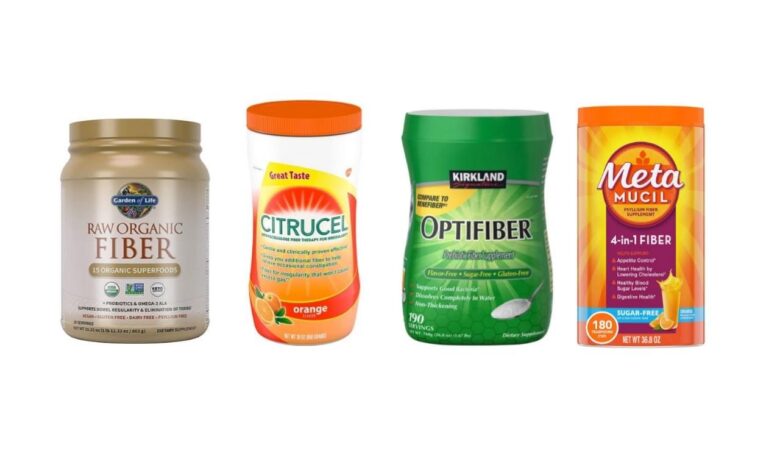Are Fiber Pills Safe For You to Consume?

Fiber supplement is a medication used to treat constipation. It increases the bulk in your stool, an effect that helps to cause movement of the intestines. It also works by increasing the amount of water in the stool, making the stool softer and easier to pass.
Some types of fiber supplements can reduce the absorption of cholesterol into your bloodstream. Bile acids help you to digest dietary fat and are normally reabsorbed to be used again. These fiber supplements form a thick gel that traps bile acid and prevents its re-absorption and is then eliminated as food waste. In response, your liver removes cholesterol from the bloodstream to make more bile acids, lowering serum total and LDL cholesterol.
Studies also reveal that people with diabetes who take soluble fiber supplements have slightly lower blood sugar than diabetics who don’t add this type of fiber to their diets, a research review finds.
Types of Supplements
There are many different types of fiber supplements. Some of them have important health benefits, while others are mostly useless. Some popular types of fiber supplements include:
Citrucel
• Dose – One tablespoon 1 to 3 times daily.
• Available forms – Orange flavored, sugar-free.
• Form of fiber – Methylcellulose, powder equals 2 grams per tablespoon.
Fiberall
• Dose – One tablespoon equals 2 grams soluble fiber and 1.5 grams of insoluble fiber.
• Available forms – Flavors include orange and tropical fruit as well as sugar-free.
FiberCon Caplets
• Dose – One caplet equals 500 mg of polycarbophil. Take 1 to 4 caplets a day.
Hydrocil Instant
• Dose – One teaspoon equals 3.5 grams of psyllium.
• Form of fiber – Psyllium.
Konsyl
• Dose – One teaspoon equals 6 grams of psyllium.
• Form of fiber – Psyllium.
Metamucil
• Dose – One teaspoon or one wafer equals 3 grams of insoluble fiber and 2 grams of soluble fiber. Take up to three times a day.
• Available forms – Flavored or non-flavored, sweetened or artificially sweetened, regular or smooth. It comes in wafers, including apple crisp and cinnamon spice.
• Form of fiber – Psyllium
Perdiem
• Dose – One teaspoon equals 4 grams of psyllium. Take up to 1 to 2 teaspoons four times a day.
• Available forms – Mint flavored.
• Form of fiber – Psyllium (stimulant).
UniFiber
• Dose – One tablespoon equals 3 grams of cellulose.
• Form of fiber – Cellulose.
Are Fiber Pills Safe For You to Consume Daily?
Yes, fiber pills are generally considered safe for most people to consume. However, there are some potential risks and considerations to keep in mind.
1. Potential Side Effects: Fiber pills can cause side effects such as bloating, gas, and stomach cramps. These side effects may be more pronounced in people who are not used to consuming high amounts of fiber or who have sensitive digestive systems.
2. Interactions with Medications: Fiber pills may interfere with the absorption of certain medications, such as birth control pills, blood thinners, and some antibiotics. If you are taking any medications, it is important to check with your healthcare provider before taking fiber pills to make sure they will not interfere with your medications.
3. Overconsumption: Consuming too much fiber can lead to gastrointestinal problems, such as constipation, diarrhea, and intestinal blockages. It is important to follow the recommended dosage and to gradually increase your fiber intake to allow your body to adjust.
4. Nutrient Deficiencies: Consuming high amounts of fiber can interfere with the absorption of certain nutrients, such as calcium, iron, and zinc. It is important to make sure you are getting enough of these nutrients in your diet, either through food or through additional supplements.
5. Quality and Purity: Like all dietary supplements, the quality and purity of fiber pills can vary widely. It is important to choose a reputable brand and read reviews and check for third-party certifications to ensure that the product is safe and effective.
Fiber pills can be safe for most people to consume as part of a balanced diet and healthy lifestyle. However, it is important to be aware of the potential risks and to follow the recommended dosage and usage instructions. It is also important to consult with a healthcare provider before taking fiber pills, especially if you have any underlying health conditions or are taking medications.
What fiber supplement is safe during pregnancy?
Except otherwise directed by your doctor, you should avoid fiber supplements and stick to more nutritional dietary sources of fiber. Some good sources of dietary fiber during pregnancy include:
Fruits: Raspberries, bananas, pears, and apples (both with skin on) contain the highest fiber content out of any fruit.
Grains: Spaghetti, barley, and bran flakes are the best types of grain-based foods fiber-wise.
What medications can interact with fiber supplements?
Research has shown that fiber supplements can interact with medications you are taking. If you are currently being treated with any of the following medications, you should not use fiber supplements without first talking to your health care provider.
Antidepressant medications (Tricyclic antidepressants): Dietary fiber has been reported to lower the blood levels and effectiveness of tricyclic antidepressant medications, such as amitriptyline (Elavil), doxepin (Sinequan), and imipramine (Tofranil), in several patients. Reduced dietary fiber intake increased blood levels and improved symptoms in these patients. Individuals currently taking tricyclic medications should consult a healthcare provider before increasing fiber intake.
Diabetes medications: While fiber supplements may help to regulate blood sugar levels, they may also interfere with the absorption of anti-diabetic medications, specifically glyburide (Diabeta) and metformin (Glucophage). Therefore, fiber supplements should not be taken at the same time as these medications.
Carbamazepine: Taking soluble fiber such as psyllium with carbamazepine (Tegretol), a medication used to treat seizure disorders, may decrease the absorption and effectiveness of carbamazepine. A healthcare provider should closely monitor the blood levels of anyone taking both soluble fiber and carbamazepine.
Cholesterol-lowering medications: Combining psyllium or other soluble fibers with cholestyramine (Questran) or colestipol (Colestid), two types of cholesterol-lowering medications known as bile acid sequestrants, may be beneficial in lowering cholesterol levels. Individuals taking these medications should consult a health care provider to determine whether psyllium is safe and appropriate.
Fiber in the form of pectin (from fruit) and oat bran reportedly reduces the body’s ability to absorb cholesterol-lowering medications known as “statins,” including lovastatin (Mevacor) and atorvastatin (Lipitor), and could lead to decreased effectiveness of these medications.
Digoxin: Fiber supplements may reduce the body’s ability to absorb digoxin (Lanoxin), a medication used to regulate heart function. Therefore, fiber supplements should not be taken at the same time as this medication.
Lithium: Clinical reports suggest that psyllium or other soluble fibers may lower lithium levels in the blood, reducing the effectiveness of this medication. Lithium levels should be monitored very closely by a healthcare provider, particularly if there is any significant change in fiber intake.
Penicillin: In one clinical study, the fiber supplement guar gum reduced blood levels of penicillin. Therefore, it would be best not to take penicillin at the same time as fiber supplements.





